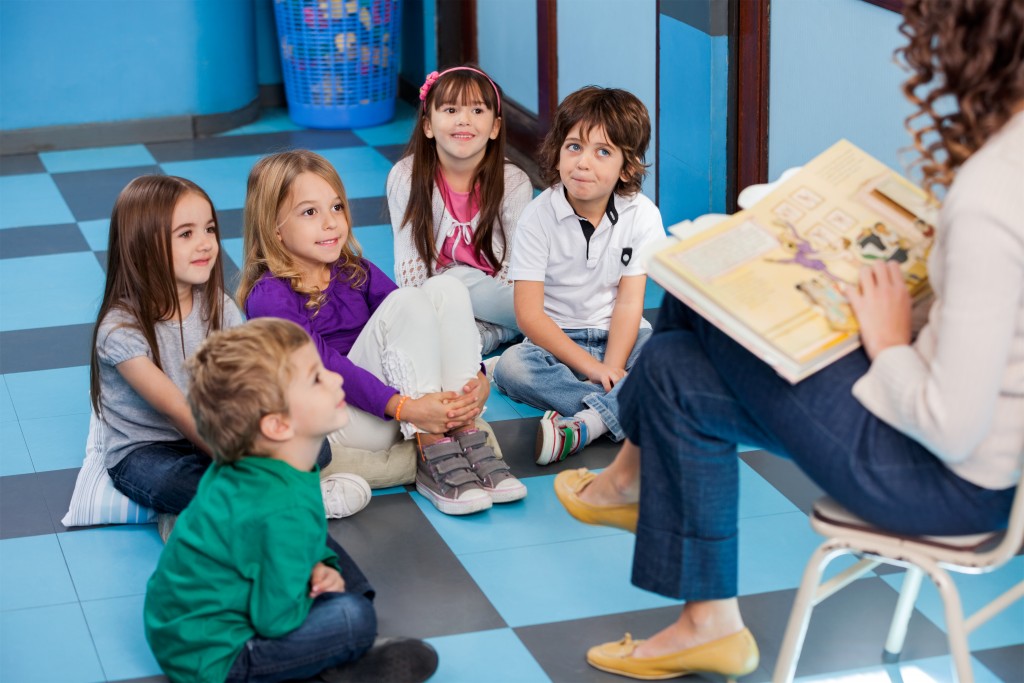- Cognitive development includes language, memory, attention, perception, and executive functions.
- Jean Piaget proposed four stages of cognitive growth: sensorimotor, preoperational, concrete operational, and formal operational.
- Language development involves acquiring grammar, syntax, and pragmatics. Memory develops from sensory to long-term memory with strategies such as rehearsal and organization.
- Social cognition is understanding others’ beliefs, desires, and perspectives and involves empathy and moral reasoning.
- Cognitive growth can be improved through the right preschool choice, cognitive activities, and a stimulating environment.
Children’s cognitive growth refers to developing their thinking, reasoning, problem-solving, and intellectual abilities as they grow and mature. It encompasses various aspects of cognitive development, including language development, memory, attention, perception, and executive functions. Here’s an overview of important aspects and stages of children’s cognitive growth and how essential decisions you can make to improve their growth.
Piaget’s Stages of Cognitive Development
Swiss psychologist Jean Piaget proposed a theory of cognitive development that outlines four main stages:
- Sensorimotor Stage (0-2 years): Infants explore the world and develop object permanence through their senses.
- Preoperational Stage (2-7 years): Children engage in symbolic play and develop language skills but may struggle with logical reasoning.
- Concrete Operational Stage (7-11 years): Children develop logical thinking and begin to understand conservation and reversibility.
- Formal Operational Stage (11 years and older): Adolescents and adults think abstractly, reason hypothetically, and engage in advanced problem-solving.
Language, Memory, and Attention
Regarding cognitive development, it’s also important to understand three essential cognition functions.
Language Development
Language plays a crucial role in cognitive growth. Children progress from babbling and single-word utterances to more complex sentences and vocabulary. They also learn grammar, syntax, and pragmatics, enabling them to communicate effectively and comprehend increasingly complex ideas.

Memory Development
Children’s memory abilities evolve as they age. Initially, they rely on sensory and working memory, gradually developing the ability to use long-term memory and strategies such as rehearsal and organization. Memory skills impact learning, information retention, and problem-solving.
Attention and Focus
Attention skills improve with age, allowing children to attend to relevant stimuli while filtering out distractions selectively. They develop sustained, selective, and divided attention, which is crucial for learning and cognitive tasks.
Social Cognition
Children also have the capability of developing social cognition. Here’s a short look into that:
Social Cognition
Children’s cognitive growth is intertwined with their social interactions and understanding of others. They develop a theory of mind, which is understanding that others have different beliefs, desires, and perspectives. Social cognition involves empathy, moral reasoning, perspective-taking, and understanding social norms.
Cultural and Environmental Influences
Cultural practices, educational opportunities, and environmental factors influence cognitive growth. Cultural contexts shape children’s cognitive development, including language acquisition, socialization practices, and problem-solving approaches.
Problem-Solving and Goals
The highest point of cognitive development is setting goals and problem-solving. Here’s a deeper look into that:
Problem-Solving and Reasoning
Children’s cognitive growth involves the development of problem-solving skills and logical reasoning abilities. They learn to apply strategies, analyze information, think critically, and make sound judgments. They progress from concrete, real-world problem-solving to abstract and hypothetical thinking.
Executive Functions
Executive functions refer to higher-order cognitive processes facilitating goal-directed behavior, self-regulation, and decision-making. These functions include inhibitory control, working memory, cognitive flexibility, planning, and problem-solving. They significantly contribute to children’s academic success, self-management, and social interactions.
Improving The Cognitive Functions of Your Children
It’s important that you make the right choices when it comes to developing your children’s cognitive functions. Here are some of those ways:

Choosing the Right Preschool
School can expose your children to many cognitive essentials, such as socialization and homework. Choosing the right pre-k school can drastically boost your child’s early cognition. The school can help them with their motor skills, language development, and problem-solving abilities.
Engaging in Cognitive Activities
Provide your children with cognitive activities that challenge them and foster their intellectual growth. Encourage active play, such as puzzles, board games, and educational apps, to promote higher-order thinking and logical reasoning.
Creating a Stimulating Environment
Surrounding your children with stimulating environments can boost their cognitive development. This includes reading to them, conversing with them, and discussing current events. You can also provide materials such as books, toys, and art supplies to engage your children in creative activities.
Children’s cognitive growth is a complex process involving many intellectual and social development aspects. Decision-making plays a vital role in this process; however, providing the right environment and encouraging meaningful interactions are essential for children’s cognitive growth. By making the appropriate choices, you can ensure your child gets the most out of their education and grows into intelligent young people.


